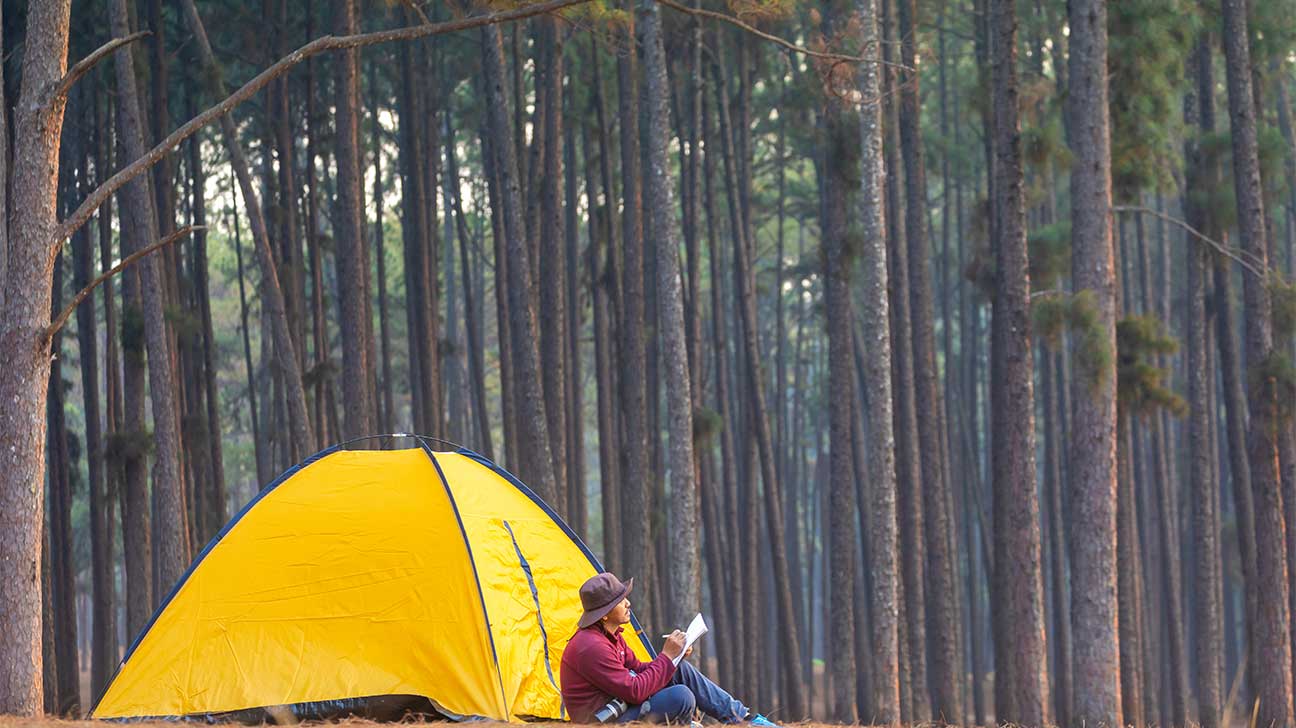
Humans are inherently natural creatures. We spent thousands of years sleeping under the stars and spending every day outside, so it makes sense that our brains evolved to respond positively to outdoor time.
As technology and industrialization have boomed in recent centuries, we spend less time outdoors than ever. It often takes effort and planning today to spend time outside.
Fortunately for people in addiction recovery, more treatment centers are starting to incorporate nature therapy and mindful outdoor time into their programs.
What Is Nature Therapy?
Nature therapy, also known as ecotherapy or green therapy, simply means spending time outdoors as a means of healing the mind, body, and spirit.
There are many different forms of ecotherapy, and an increasing number of mental health and addiction treatment programs use these services to help people.
People who do not engage with nature in any way often report higher levels of stress, more frequent low moods, and physical or mental health problems.
Ecotherapy works to counteract these issues by encouraging people to return to their roots and deepen their connection to the natural world.
Nature therapy is slightly different than simply going outside. When participating in an ecotherapy program, you’ll often be guided by a licensed mental health professional.
Different Types Of Ecotherapy
The various forms of nature therapy are seemingly as diverse as nature itself, making it easy to find an ecotherapy program that works best for you.
Ecotherapy ranges from informal backyard activities to structured, intentional programs led by therapists.
Adventure Therapy
Adventure therapy is one of the more exciting and physically involved forms of ecotherapy.
Adventure therapy programs may include activities such as:
- rock climbing
- kayaking
- backpacking or more challenging hiking trips
- cycling
- camping
Adventure therapy is frequently found in mental health programs for teenagers, but it also benefits adults of all ages.
This type of ecotherapy teaches people self-reliance and confidence, allowing them to embrace new perspectives and ways of doing things, while also improving physical health.
Animal-Assisted Therapy
Animal-assisted therapy has been gaining a lot of attention in recent years. It can be found everywhere from college campuses to hospitals to addiction treatment facilities.
Dog and equine therapy are the most popular forms of this therapy, but some programs also incorporate the use of farm animals like pigs, sheep, chickens, or goats.
Animal-assisted therapy encourages people to bond with another living creature, which has been shown to decrease loneliness and promote feelings of calm or comfort.
Animal-assisted therapy can range from short visits with an animal during times of stress to long-term programs where a person is assigned a specific animal to care for.
Horticulture Therapy
Also known as therapeutic farming, this form of ecotherapy focuses on farming and working directly with plants.
Gardening has long been a popular de-stressing activity, and growing your own fruits or vegetables has both mental and physical health benefits.
In a rehab program that uses horticulture therapy, you may be given your own community garden plot. Treatment providers can guide you as you learn to grow various plants or flowers.
Wilderness Therapy
Wilderness therapy is frequently done in groups and aims to teach people survival tactics in outdoor spaces far from towns or cities.
As a more challenging form of nature therapy, it encourages people to learn how to build shelters, hike long distances, forage for food, and engage in other primitive activities with limited resources.
There are both short- and long-term forms of wilderness therapy, ranging from a few days to a year or more.
Forest Bathing
Forest bathing, or forest therapy, is a relatively simple but beneficial form of ecotherapy. Mindfulness and intention setting are important aspects of this nature-based therapy.
During a forest bathing session, you might be guided through the woods by a healthcare professional who will ask you to use your five senses to identify what’s happening around you.
You may also spend time walking or sitting quietly in the forest and focusing on staying in the present moment. Forest bathing tends to elicit serene, calm, and peaceful emotions.
How Does Nature Benefit Mental Health And Addiction Treatment?
Being in nature has a range of different mental and physical health benefits.
One study found that spending at least 120 minutes (two hours) outside each week led to:
- decreased anxiety, stress, and depression
- improved cognitive development
- lower risks of heart disease, obesity, diabetes, and other physical ailments
- improved birth outcomes
- increased feelings of happiness, positivity, and meaningfulness
Spending time outdoors also sharpens our brains and leads to better memory functioning, attention spans, and ability to focus.
Although ecotherapy can be done individually, in groups it often promotes a sense of connection both with oneself as well as with others.
Incorporating Ecotherapy Into Daily Life
There are countless small and big ways to incorporate nature and the benefits of green therapy into your daily routine.
Some simple ways to get started near home include doing trash pickups, gardening, stargazing after dark, or taking a stroll through a local park.
If outdoor activities are inaccessible to you right now, you can bring nature indoors with potted plants, paintings and pictures of natural landscapes, or even recorded nature sounds and videos.
No matter how you choose to interact with the natural world, you’re sure to begin noticing the mental and physical benefits right away.
Get Help For A Substance Use Disorder
If you or a loved one are battling drug addiction or alcohol abuse, don’t hesitate to find help. To learn more about the recovery resources available to you, contact us today.
Article Sources

